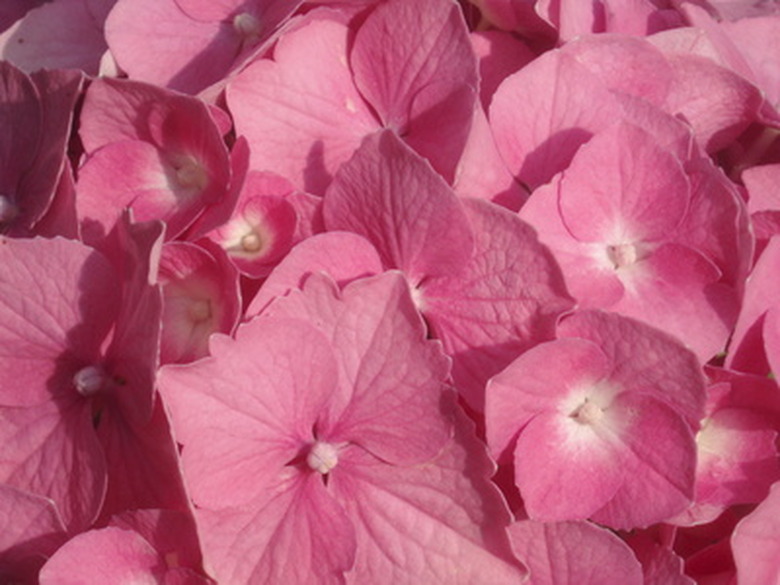How To Treat A Black Spot On Hydrangeas
Water, while an absolute necessity, can also cause a lot of problems in the garden. Water on foliage and high humidity levels set up perfect conditions for fungi to grow. There are several fungal diseases of hydrangea that cause black spots, the most notorious and common of which is Cercospora hydrangeae. Although this disease makes the plant look bad, it won't kill it.
Step 1
Prune off all dead, dying and diseased branches in the spring. If the plants are crowded, prune them enough to provide good air flow around and through each hydrangea plant.
Step 2
Clean around the bush, making sure to get any dead leaves and other debris. Remove old mulch. This should be done in every spring and again in fall.
- Water, while an absolute necessity, can also cause a lot of problems in the garden.
- If the plants are crowded, prune them enough to provide good air flow around and through each hydrangea plant.
Step 3
Lay down 2 inches of fresh compost around the base of the plant at the beginning of each season.
Step 4
Apply neem oil at the first sign of an infection.
Treat A Black Spot On Hydrangeas
Trim the oldest and largest stems to the base each spring and after flowering using bypass pruners. Remove all dropped, diseased leaves from the ground and discard. Apply 2 inches of fresh compost to the soil to smother fungal spores and to aid in disease prevention. Fill a spray bottle with 1 pint of tepid water and 1/2 tablespoon neem oil and mix well. Spray the stems and tops and bottoms of the leaves of the hydrangeas and discard the solution, as it breaks down within hours after mixing. Spray it on the hydrangeas every seven days. Copper-based fungicides treat leaf spots and powdery mildew, which causes dark spots to appear on the leaves along with grayish white powder.
- Lay down 2 inches of fresh compost around the base of the plant at the beginning of each season.
- Spray the stems and tops and bottoms of the leaves of the hydrangeas and discard the solution, as it breaks down within hours after mixing.
Things Needed
- Pruning shears
- Compost
- Neem oil
